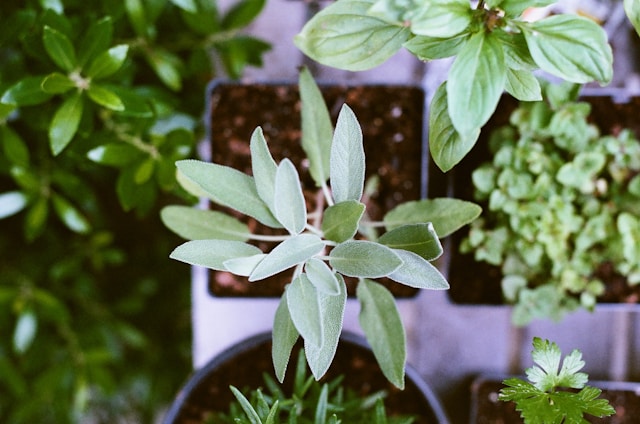
Medicinal plants and herbs have long been the center of healing practices across cultures. From the old Ayurvedic traditions to modern herbalism, the natural remedies provided by these medicinal plants and herbs are so potent for the human body and mind. As more and more people become aware of the importance of holistic health, the use of Medicinal Plants and Herbs is again gaining attention as a natural, safe, and effective way to present solutions to a wide array of health concerns.
Historical Significance of Medicinal Plants
Medicinal plants have played a vibrant role in traditional healing throughout the ages. Ancient Egyptians, Greeks, and Chinese used herbs to treat ailments and well-being. For thousands of years, the medicinal properties of plants have been well documented, emphasizing their core role in the development of medicine. Today, most pharmaceutical drugs are extracted from the active chemical compounds discovered in plants, such as aspirin, which is derived from willow bark.
Popular Medicinal Herbs and Their Benefits
Several medicinal plants have been widely used for their medical uses. Some of the commonly known herbs, along with their benefits, are as follows:
Aloe Vera
One of the most identifiable plants is aloe vera. Aloe vera calms, cures, and helps prevent illnesses, mainly burns, cuts, rashes, and other skin afflictions. The gel from the aloe plant has anti-inflammatory properties that help reduce inflammation, prevent microbial growth, and act as an antidote for acne, eczema, or digestive problems when ingested.
Turmeric
A staple in Ayurvedic medicine, turmeric contains a specific compound called curcumin, which is a very potent anti-inflammatory. It provides a reduction in inflammation, helps manage arthritis pain and promotes heart health. Turmeric’s antioxidant properties also help improve skin health and combat oxidative stress in the body.
Ginger
Being a cousin to turmeric, ginger has been used for years to prevent nausea and other digestive disorders. It offers anti-inflammatory and antioxidant effects attributed to the gingerol content, helps reduce muscle pain, combat infections, and supports heart health. Immunologically, it enhances immunity and also reduces blood sugar levels.
Echinacea
This herb can boost the immune system to its potential and reduce the severity of cold and flu symptoms. It is further associated with antibacterial and antiviral activities that help in preventing infections of various types in a person’s total well-being.
Lavender
Lavender oil is primarily used for its relaxing and stress-releasing properties. Its fragrance calms people, lowers anxiety levels, helps people get quality sleep, and is even thought to enhance people’s moods. Besides that, it is also used topically to treat burns, bites from mosquitoes and other insects, and minor skin irritation.
How Medicinal Plants Promote Holistic Health
These Medicinal Plants and Herbs are not only supposed to help the physical but also contribute to one’s emotional and mental health. Many herbs are adaptogens-meaning that they help the body adjust to stress. For example, this particular adaptogen, ashwagandha, tries to manage the cortisol levels in your body and, therefore, enhances resistance to stress and reduces fatigue.
Medicinal plants heal using a holistic approach, which means they actually treat a problem at the source rather than just trying to curb attacks. They impact the body’s natural healing process and are, therefore, better over time to support general health.
Medicinal Plants and Modern Science
Several medicinal plants have health benefits that many scientific studies have supported. For instance, ginseng, ginkgo biloba, and milk thistle contain bioactive substances that improve cognitive abilities while relieving liver diseases and preventing age-related diseases.
Besides, medicinal plants can cause fewer side effects compared to medical drugs, making them relatively safer for many people to use. Owing to the demand for natural and plant-based remedies, research into these kinds of plants is ongoing in an effort to fully utilize them in treating various health conditions.
How to Safely Use Medicinal Herbs
Even though there are a lot of medicinal benefits in using medicinal plants, proper usage is all the more important to avoid harm. Professional herbalists or health providers should be consulted, mainly if you are already on prescription drugs. Several herbs can interfere with medications, making either the drug ineffective or causing unwanted side effects.
Medicinal herbs require that you start with very low doses, increase the doses, and establish that your body will positively react to them. You can use these herbs in various ways, for instance, as teas, tinctures, capsules, or even essential oils. You should only use quality herbs that have been extracted from good suppliers without any contaminants.
Conclusion
With the incredible variety they offer for health benefits, medicinal plants and herbs can cater to skin conditions to chronic illnesses. A rich history combined with modern scientific validation holds real potential for these to be effective natural remedies. The world is shifting focus towards natural and sustainable approaches to health. In doing so, the world is rediscovering the power of medicinal plants. Nature has many pharmacies around us, and if we know how to deal with these healing plants and respect them, they can prove good friends in the journey towards good health.
